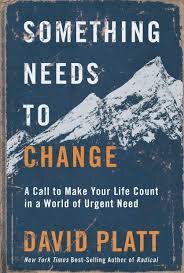Shantung Compound - A Review
One of the biggest problems with political thought is that everyone is trying to argue for a solution to a given problem, but few of those speaking have truly taken time to understand the nature and complexity of the problem. They may have compiled statistics, done interviews, or taken pictures to represent the symptoms of the problem, but rarely have they taken the time to look beyond the symptoms to the source.
In general, those who have the most confidence in their solutions being the panacea for whatever ails society, whether in politics or in economics, have done the least consideration of what it is to be human. Drugs, violent crime, sexual perversions, racial hatred, and systemic inequity are all symptoms. The heart of the problem is humanity and the sin nature we all were born with.
Langdon Gilkey’s book, Shantung Compound: The Story of Men and Women Under Pressure, is both a memoir and a well-considered assessment of humanity. Though Gilkey was a theologian, this book is much more interesting for its discussions of human nature regarding political and economic order.
The book contains fourteen chapters. There is a rough chronology to it, but its core is presented thematically. Gilkey covers adaptation to deprivation in an internment camp, establishment of political order, the rise and fall of the black market, the significance of the human desire for space, and the search for meaning in the narrowed confines of a prison camp.
Shantung Compound is, in part, an explanation of why Gilkey came to reject the anthropology of his liberal Protestant upbringing and take a much less idealistic view of what is politically possible. Gilkey is neither socialist nor capitalist. In fact, he offers significant questions for rigid adherents to both poles of economic order.
Throughout the book, Gilkey is exceedingly critical (and likely somewhat dishonest toward) religious adherents, particularly the Protestant missionaries that were incarcerated alongside him. However, he also raises significant questions about the way so many of the Protestant missionaries failed to live out their ideals of selflessness and sacrifice when their basic needs were encroached upon. Gilkey is adamantly non-exclusive in his understanding of salvation and morality, but at the same time he affirms the necessity of the existence of a god as the best explanation for the order that exists.
Those interested in accounts of World War II will find this another interesting perspective. It shares with Victor Frankl’s Man’s Search for Meaning multiple significant traits: it deals with prisoners in an enemy camp, faced with physically trying conditions, and, more significantly, the strong potential for despair. Both the agnostic Frankl and Gilkey arrive at similar conclusions that humans must find meaning outside of themselves if they are to keep from despair and social anarchy when everything is stripped away. Intriguingly, both men argue there must be meaning behind work besides mere survival and economic reward.
Frankl’s classic book provides a deeper look at the individual human condition, because it was written based on his time in a Nazi concentration camp. Gilkey’s experience, though harsh, was much less horrid because he spent the war in a civilian run prison camp. Neither experience was pleasant, but Gilkey’s allowed him to observe the construction of a new, basically independent society within the prison camp.
The international collection of prisoners in the Shantung Compound had autonomy to set up their own councils, manage their own cooking, and distribute those resources provided according to whatever rules they could establish. This self-contained society, who resources were limited and provided by their captors (with the exception of limited black-market goods), had to establish order without recourse to force, encourage each other through entertainments, and maintain satisfaction with relatively equitable distribution of very limited goods. The accounts of how that was accomplished reveal a great deal about political theory.
At the same time, the artificial circumstances limit the applicability of some of its lessons. At the end, Gilkey attempts to argue for greater international aid as a way to establish lasting peace. Setting aside the rafts of evidence that have been published since 1966 by people from both sides of the political spectrum, which shows the dangers of long-term aid, his case is not proved by this account because of the involuntary isolation of this community. In other words, some of the lessons are very helpful, but it is dangerous to draw too many firm conclusions because the same fences and guards that created the experiment also create the artificiality that keeps the lessons of Shantung Compound from being universally applicable. We cannot check our reason on the basic even of a well-considered anecdote.
Gilkey’s Shantung Compound is an important book, I think, for those considering the nature of humanity. It is the record of an experiment that ran for quite long enough to draw some conclusions. There is some helpful reasoning in the volume about ethics, politics, and human nature. It is the sort of book that those thinking about political theory and economics would do well to consider, especially as Western societies wrestle with the excesses of affluence and the cultural rot that has resulted.















Reading your Bible is a battle. There’s a reason why Paul lists Scripture as the sword of the Spirit in his discussion of the armor of God (Eph. 6:17). More even than that, Scripture reveals God’s character and is, thus, central to worshiping well (Psalm 119). That’s why reading the Bible is a battle.